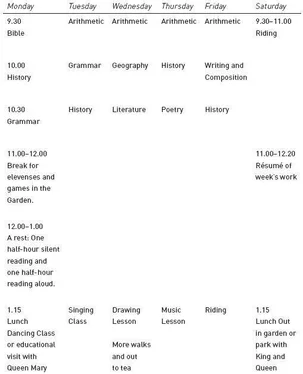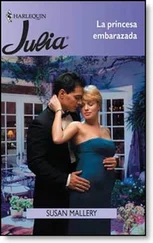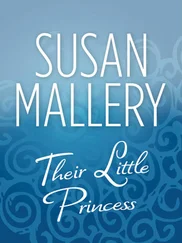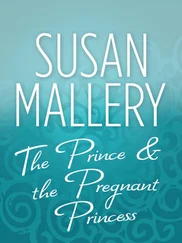Susan MacNeal - Princess Elizabeth's Spy
Здесь есть возможность читать онлайн «Susan MacNeal - Princess Elizabeth's Spy» весь текст электронной книги совершенно бесплатно (целиком полную версию без сокращений). В некоторых случаях можно слушать аудио, скачать через торрент в формате fb2 и присутствует краткое содержание. Жанр: Старинная литература, на английском языке. Описание произведения, (предисловие) а так же отзывы посетителей доступны на портале библиотеки ЛибКат.
- Название:Princess Elizabeth's Spy
- Автор:
- Жанр:
- Год:неизвестен
- ISBN:нет данных
- Рейтинг книги:4 / 5. Голосов: 1
-
Избранное:Добавить в избранное
- Отзывы:
-
Ваша оценка:
- 80
- 1
- 2
- 3
- 4
- 5
Princess Elizabeth's Spy: краткое содержание, описание и аннотация
Предлагаем к чтению аннотацию, описание, краткое содержание или предисловие (зависит от того, что написал сам автор книги «Princess Elizabeth's Spy»). Если вы не нашли необходимую информацию о книге — напишите в комментариях, мы постараемся отыскать её.
Princess Elizabeth's Spy — читать онлайн бесплатно полную книгу (весь текст) целиком
Ниже представлен текст книги, разбитый по страницам. Система сохранения места последней прочитанной страницы, позволяет с удобством читать онлайн бесплатно книгу «Princess Elizabeth's Spy», без необходимости каждый раз заново искать на чём Вы остановились. Поставьте закладку, и сможете в любой момент перейти на страницу, на которой закончили чтение.
Интервал:
Закладка:
“Of course it does,” he snapped, “but it doesn’t need to be you !”
“Mr. Churchill asked me.” She went to her closet.
“Forget Churchill! It’s too dangerous.”
“I would disagree,” Maggie said, taking a few dresses off hangers. “And the Prime Minister and Mr. Frain think otherwise, too.”
“Look, she’s a despicable human being, a sociopath. Do you really think you can just walk up to her and say, ‘Hello, Mother’?”
Maggie gave a tight smile as she folded the dresses and placed them in her suitcase. “That’s not in the mission plan.”
“And even if you do have a moment where you can reconnect, it doesn’t change what she did!”
She turned back to the closet, rummaging for sweaters on a high shelf. “Dad, I know. Hugh is—one of my best friends. How could I possibly forget what she did to his father, the pain he still carries? And that she did the same thing to nineteen other families?”
“Do you expect her to say, ‘Oh, my dear darling daughter, how I’ve missed you all these years? Let’s go shopping and then have tea?’”
“N-no. No! Of course not!” Maggie took down a few sweaters, then turned and looked Edmund in the eye. “There’s one thing I’ve been wondering about, though.”
“Yes?”
“When I went to what I thought were your graves at Highgate Cemetery—which turned out to be only her grave—there were fresh white roses by the headstone. I remember the gardener said a man came regularly, to leave them. Is that you? Were you—are you—leaving flowers on her grave?”
Edmund lowered his eyes. “Yes,” he said finally.
“But why? She betrayed you—betrayed us. She’s not even there, not even dead! Why?”
“I loved her,” Edmund answered. “Or at least the person I thought she was.”
“I see,” Maggie said, not seeing at all. She placed the sweaters in the suitcase.
After a few moments passed, Edmund rubbed at his eyes with his fist, then said, “And, what, exactly, is your mission?”
“I’m afraid, Dad,” she said, closing the valise and tightening the leather buckle, “that it’s classified.”
They both heard voices in the flat. “Maggie? Maggie?”
“Coming!” she called. Then, to her father, “they’re giving me a little party before I leave.” There was an awkward pause. “Would you like to stay?”
Edmund tugged at his collar. “I have to get back to the office, actually. I’m off the Bletchley case now. Getting a new assignment.”
“I’ll walk you out, then,” Maggie told him.
People had already begun to arrive. David put a Fred Astaire record on the phonograph and she could hear him in the kitchen, using a pick to make ice chips for shaking cocktails. As “Let’s Face the Music and Dance” began to play, he came in with a tray of glasses full of amber liquid.
“Sure you won’t stay?” she asked.
“Afraid not,” he said. “Good luck, Maggie.”
“Thank you. To you too.” She let him kiss her cheek before he left.
After the door closed, the party began in earnest. David was there, as was Hugh, talking to Sarah, perched on the windowsill. And there were a few dancers from the ballet and people from No. 10, including Richard Snodgrass.
“Don’t suppose you can tell us what you’re up to next, Miss Hope?” Richard asked as Hugh handed her a martini.
“It’s terribly boring,” Maggie said as she accepted the glass. “Up to Scotland, to do goodness knows what sort of paperwork.”
“That’s your official story, then?” Richard asked.
“I’m afraid so.” She smiled. “And I’m standing by it.”
Hugh raised his glass. “To Maggie,” he said. “Wherever her travels may lead. Although, I must say, I hope they ultimately lead her back to me.”
“Thank you, Hugh,” she said, blushing.
“To Maggie,” the rest chorused.
She was momentarily speechless, then pulled herself together. “Thank you,” she said. “But I must toast to you, all of you—it’s a horrible war we’re in, but it’s had a strange way of bringing people together—and helping us all achieve much more than what we think we’re capable of. To us, then.”
“To us! Cheers!”
And they drank and danced long into the night.
The pilot had survived, but barely.
He’d survived first by burying his parachute. He’d survived by limping, then finally crawling, though fields and woods until he found a barn. He’d survived by drinking rainwater from a pig trough and eating their scraps. He’d survived by hiding his identity disks and ripping out any British labels in his clothes. And he’d survived by staying in the barn’s hayloft during the day, afraid to move a muscle or make a sound.
Still, with the internal organ damage he sustained, he wouldn’t be able to survive much longer, at least without proper medical care. Which was why, finally, he gave himself up to the farmer and his wife, Herr and Frau Schäfer.
They did not turn him into the local police.
Instead, they put him to bed in a room with fresh white sheets and fed him brown bread soaked in milk. When he had slept for hours and hours, he awoke to see Frau Schäfer sitting at his bedside, knitting a heavy wool sweater with hand-spun yarn.
“It’s all right,” she said in German, her gnarled fingers moving like lightning. “We know who you are, and you’re safe here.”
“Thank you,” he replied. He wished he had studied more German in school. Still, he tried his best. “I appreciate everything you and your husband are doing.”
“You’re very lucky,” she said, pointing a knitting needle at him.
“Lucky,” he repeated, and gave a sour laugh. In some ways he was—lucky to be alive, lucky to be picked up by sympathetic Germans—and in some ways he wasn’t—injured in enemy territory, mostly ignorant of the language.…
“You are lucky,” she insisted. “God was looking out for you.”
He was a pro-forma Anglican, who attended church services at holidays only, and then mostly for the music. “I’m not sure if God had much to do with it.”
Herr Schäfer heard them talking and came in, his bulk blocking most of the doorframe. “God has everything to do with everything. Now make the poor man some breakfast, Maria. I’ve brought in the eggs.”
What saved him from despair was the courage of Maria and Hans Schäfer. He had no idea what the price would be for harboring an enemy soldier, but it had to be bad.
The Schäfers knew he had flown over their land, dropping bombs, and yet they fed him white asparagus with butter, golden fried potatoes, coarse sausages, and plum cake. They would not take any of his marks, which all RAF pilots flying over Germany were given in case of an emergency, to help out with the added food ration. “We live on a farm,” they said to him. “What is one more mouth to feed?”
In return, he held hanks of coarse, greasy yarn between two upraised hands while he lay in bed, while Frau Schäfer wound it into balls. Often they would sit together in silence. Sometimes she would speak to him, and he would try to keep up as best he could. And sometimes she would pray, her eyes closed, her hands still wrapping strands of yarn around the ball. This was his favorite time. Whatever happened—and he knew that anything could happen, at any moment—this was peace.
They knew they couldn’t take him to a hospital, but they called their veterinarian, to take a look at the Briton’s injuries.
The veterinarian, Dr. Lang, a stooped-over man with scraggly white eyebrows, examined his injuries with cool, gentle hands. His ken was pigs and sheep and chickens—not humans. Certainly not humans this damaged. “Wait here,” he said to young man, as if he were in any condition to get up from the bed, and then went to talk to the Schäfers.
Читать дальшеИнтервал:
Закладка:
Похожие книги на «Princess Elizabeth's Spy»
Представляем Вашему вниманию похожие книги на «Princess Elizabeth's Spy» списком для выбора. Мы отобрали схожую по названию и смыслу литературу в надежде предоставить читателям больше вариантов отыскать новые, интересные, ещё непрочитанные произведения.
Обсуждение, отзывы о книге «Princess Elizabeth's Spy» и просто собственные мнения читателей. Оставьте ваши комментарии, напишите, что Вы думаете о произведении, его смысле или главных героях. Укажите что конкретно понравилось, а что нет, и почему Вы так считаете.












